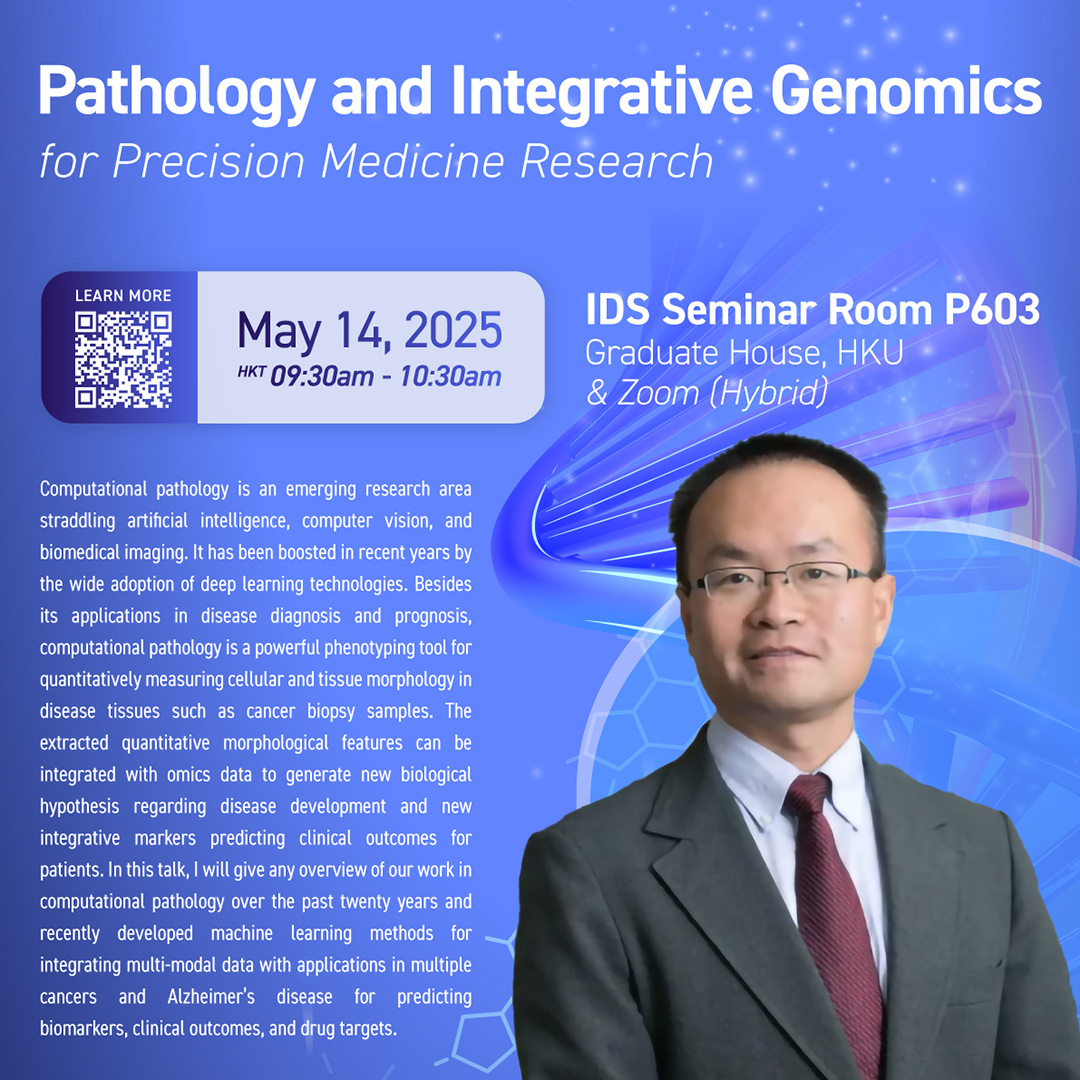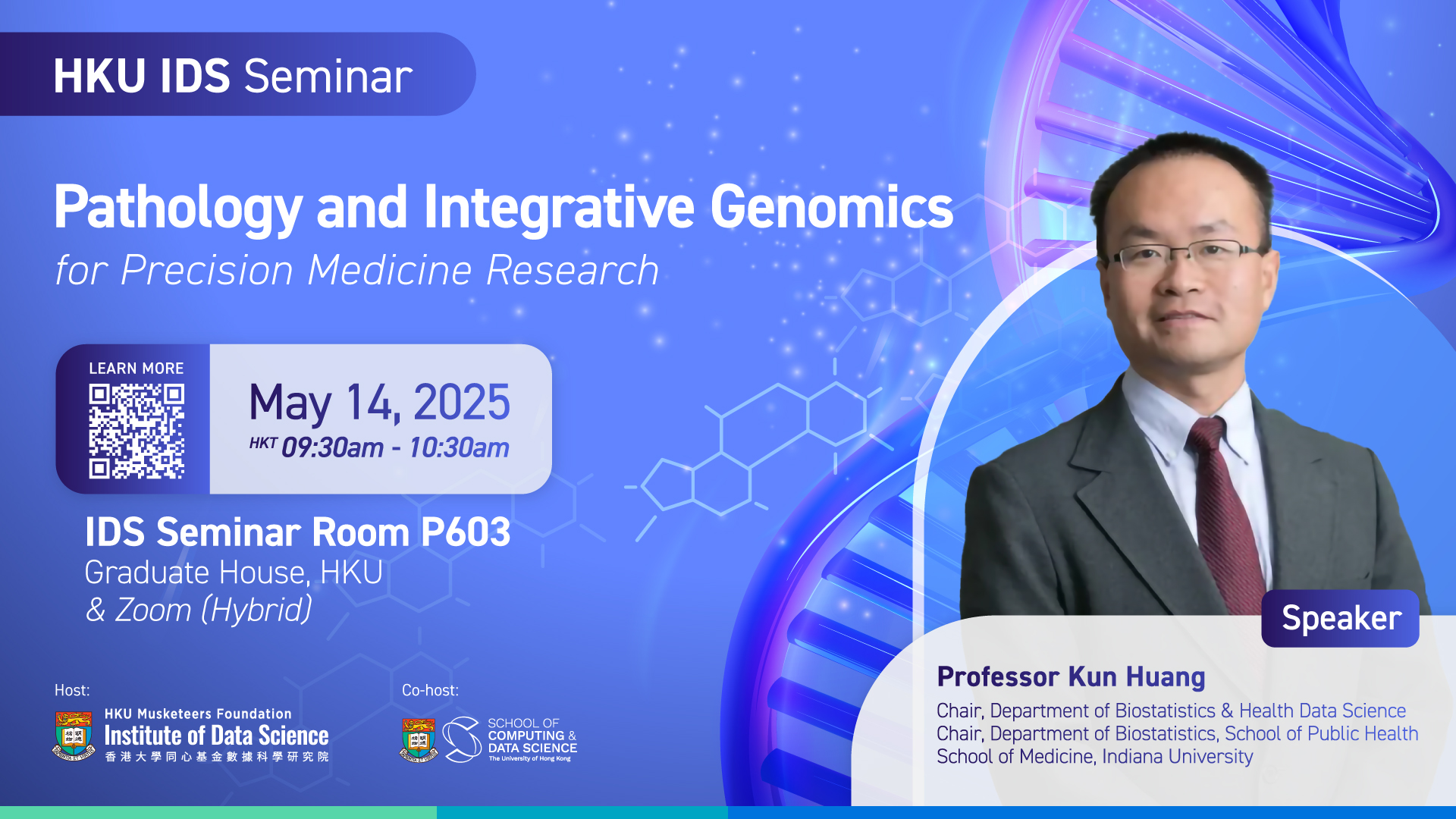
12 May 2025
Computational pathology is an emerging research area straddling artificial intelligence, computer vision, and biomedical imaging. It has been boosted in recent years by the wide adoption of deep learning technologies. Besides its applications in disease diagnosis and prognosis, computational pathology is a powerful phenotyping tool for quantitatively measuring cellular and tissue morphology in disease tissues such as cancer biopsy samples.


The School of Computing and Data Science (CDS) is pleased to be a co-host for an upcoming IDS Seminar, which will feature Professor Kun Huang.
Speaker:
Professor Kun Huang, Chair, Department of Biostatistics & Health Data Science & Department of Biostatistics, School of Public Health, School of Medicine, Indiana University
Moderator:
Professor Yi Ma, Director & Professor, Chair of Artificial Intelligence, HKU IDS / CDS
Date:
May 14 (Wednesday)
Time:
9:30 am – 10:30 am
Venue:
– On-site Venue: P603 Seminar Room, IDS, Graduate House
– Zoom Webinar
Abstract:
Computational pathology is an emerging research area straddling artificial intelligence, computer vision, and biomedical imaging. It has been boosted in recent years by the wide adoption of deep learning technologies. Besides its applications in disease diagnosis and prognosis, computational pathology is a powerful phenotyping tool for quantitatively measuring cellular and tissue morphology in disease tissues such as cancer biopsy samples. The extracted quantitative morphological features can be integrated with omics data to generate new biological hypothesis regarding disease development and new integrative markers predicting clinical outcomes for patients. In this talk, he will give any overview of their work in computational pathology over the past twenty years and recently developed machine learning methods for integrating multi-modal data with applications in multiple cancers and Alzheimer’s disease for predicting biomarkers, clinical outcomes, and drug targets.
Speaker Biography:
Professor Kun Huang received his BS degrees in Biological Science and Computer Science from Tsinghua University in 1996 and his MS degrees in Physiology, Electrical Engineering, and Mathematics all from University of Illinois at Urbana-Champaign (UIUC). He then received his PhD in Electrical and Computer Engineering from UIUC in 2004 with a focus on computer vision and machine learning. He was a faculty member in the Department of Biomedical Informatics at The Ohio State University (OSU) from 2004 to 2017 where he served as the Associate Dean for Genome Informatics in the College of Medicine. He joined Indiana University School of Medicine as Director for Data Science and Informatics of the Precision Health Initiative in 2017. Currently he is the IUSM PHI Endowed Chair for Genomic Data Science, Professor and Chair of the Department of Biostatistics and Health Data Science at Indiana University School of Medicine and Fairbanks School of Public Health. He is also the Associate Director for Data Science of the IU Simon Comprehensive Cancer Center and a member of the Regenstrief Institute. His research interests include bioimage informatics, computational pathology, translational bioinformatics, and heath data science. He is an elected Fellow of American Institute of Medical and Biological Engineering (AIMBE) and published more than 250 research papers.
